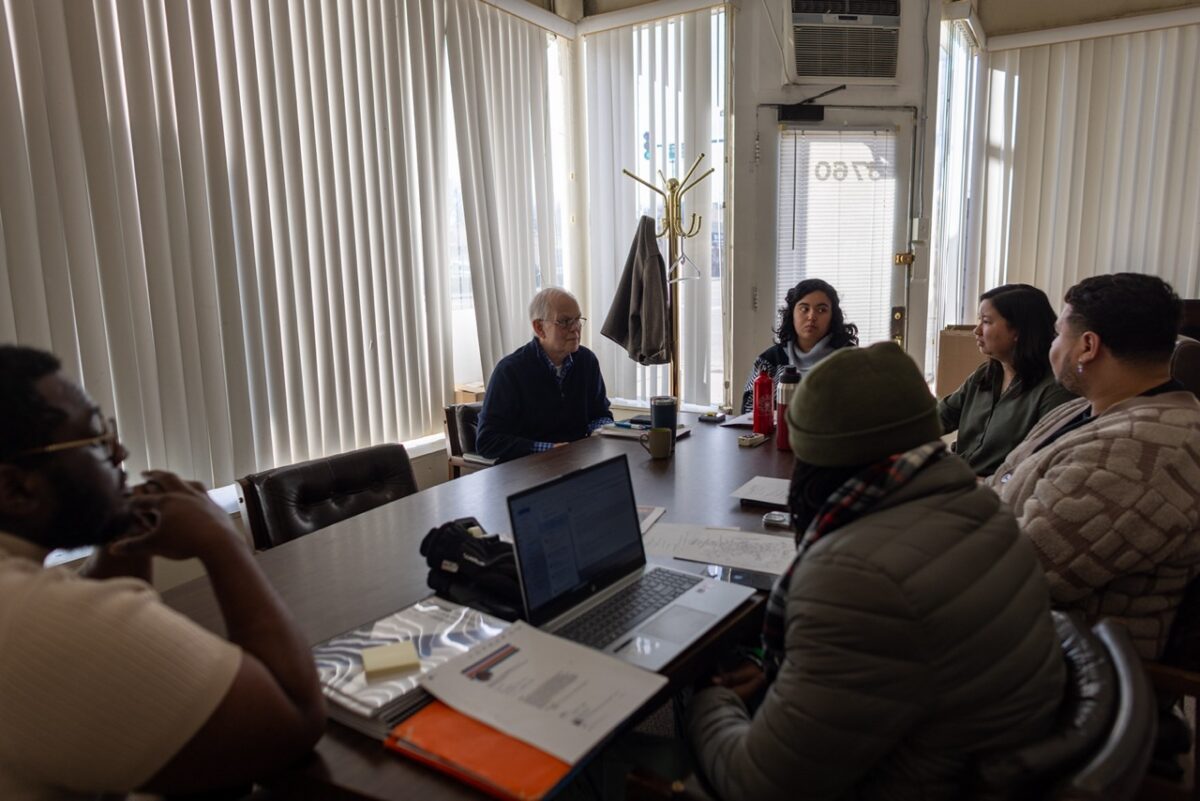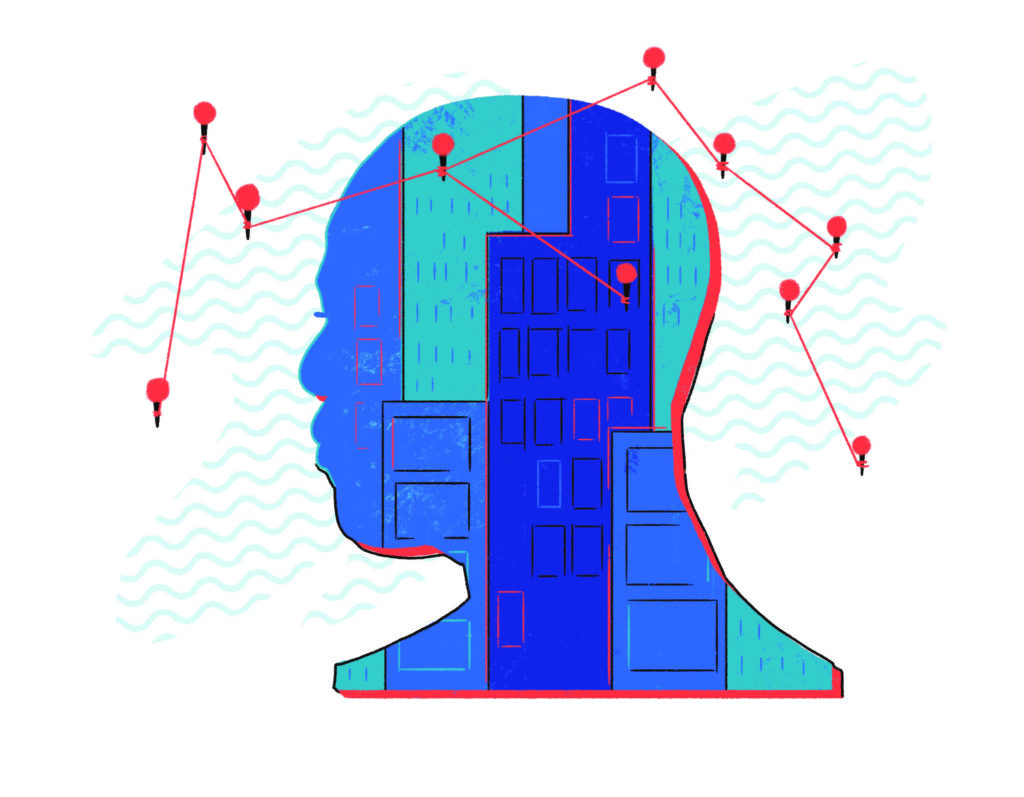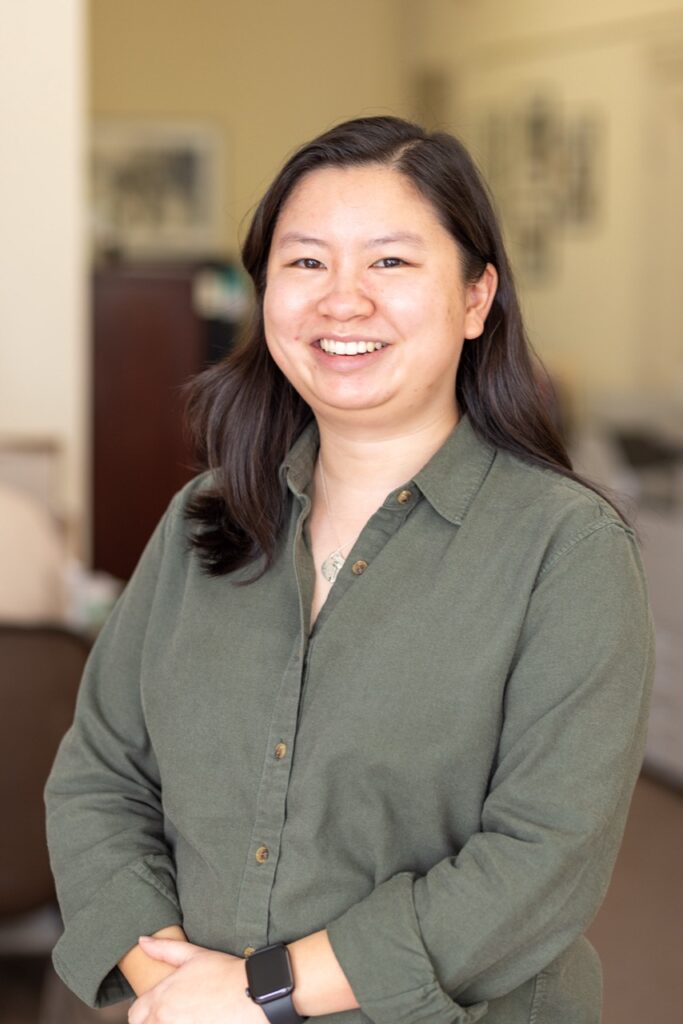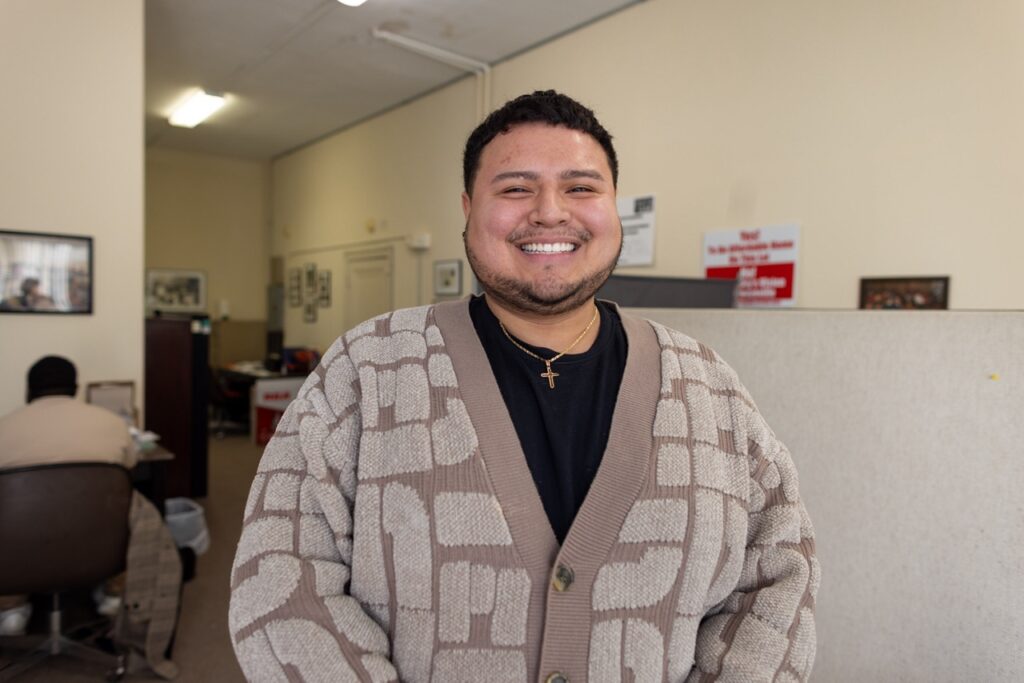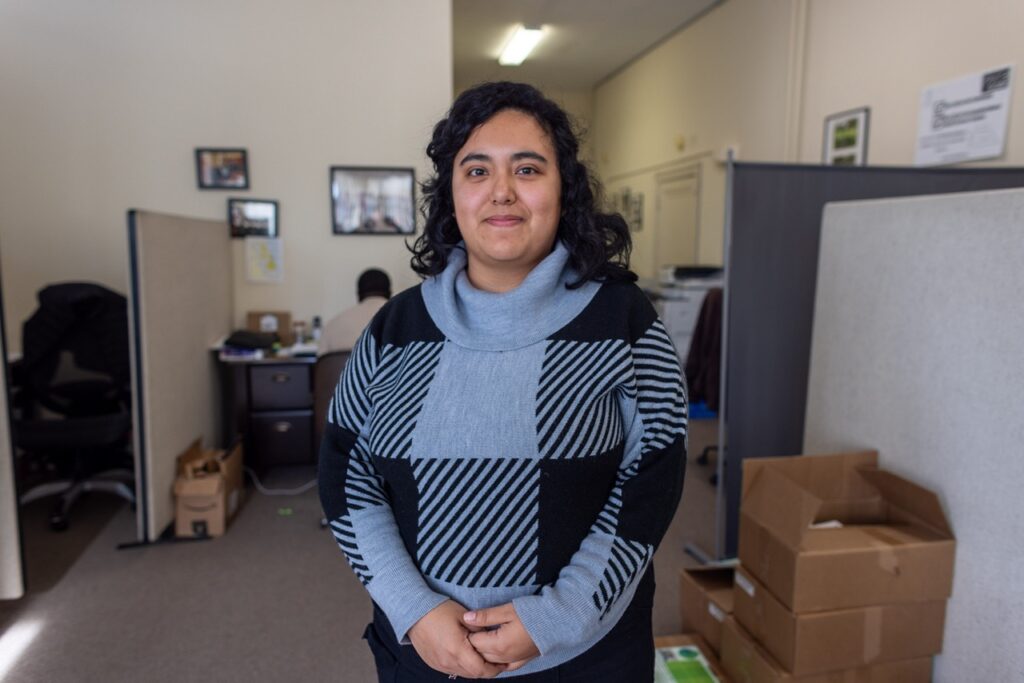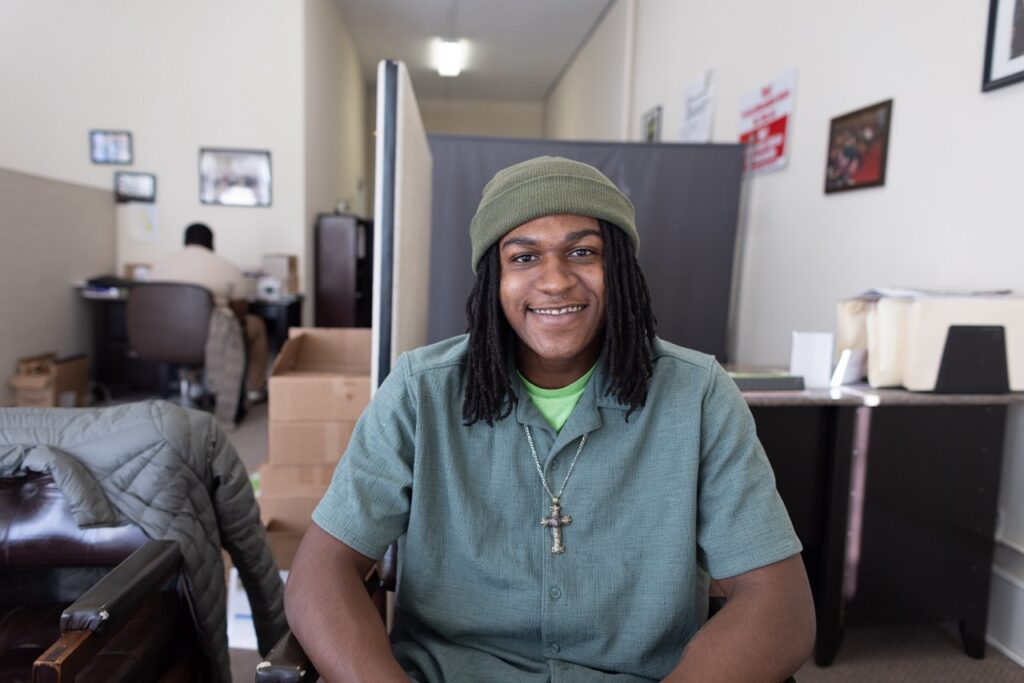On November 6, while City Hall was embroiled in a budget brawl over rising property taxes and declining federal support, voters in two South Side districts did something you might not expect.
By margins of 79 and 91 percent, voters in one Near Southwest Side district stretching from Bridgeport to Little Village and another district centered on Englewood and Greater Chatham voted to raise their own property taxes in order to fund locally-controlled mental health services.
The tax hike is very small—about 0.025 percent of property value, or around $20 a year for an average homeowner. But organizers say the response shows broad support for increased accessible mental health services.
The Near Southwest Side and Englewood districts are the seventh and eighth areas to approve a tax levy to support a community mental health center. Since 2014, three centers providing residents with services regardless of ability to pay have been opened in the North River area, West Garfield Park, and Logan Square-Hermosa-Avondale. Districts have also been approved in West Town-Humboldt Park, Bronzeville, and the Southeast Side, from Kenwood to South Shore.
The campaign is spearheaded by the Coalition to Save Our Mental Health Centers. The group was founded in 1991 by therapists and clients at the City’s North River Mental Health Center, backed by local community organizers, where they learned that Mayor Richard M. Daley was considering closing City clinics.
At the time, Chicago had nineteen City-run mental health clinics, most of them created as a result of President John F. Kennedy’s Community Mental Health Act. But starting in the Reagan administration in the 1980s, federal support for the centers began drying up, recalls Michael Snedeker, the coalition’s executive director. In Illinois, the state started cutting mental health funding in the 1990s, he said.
Further Reading
As states and cities were squeezed by federal cutbacks across the board, they found that “mental health was an easy line item to cut,” Snedeker said. “And the city would blame the state and the state would blame the city, and the mental health clients would pay the price.”
The coalition worked for a decade to keep the City’s clinics open, “and many years we were successful, but some years the City would peel off one here or two there, and we began to get frustrated.”
They decided the community mental health movement needed to address the funding issue directly. Their solution was local: “keeping it local, funding it locally, having it overseen locally, having the services tailored directly to what a community needs,” Snedeker said. They developed the concept of the Expanded Community Mental Health Services Program, with homeowners paying a small property tax levy to fund a center that would be available to all residents—and, crucially, that couldn’t be taken away the next time budgets got tight.
Voters in an advisory referendum strongly backed the concept, but Mayor Daley was “dead set against it,” so the coalition worked with state legislators to pass the Community Expanded Mental Health Services Act in 2011. In 2012 they launched their first campaign for a mental health district in the North River area.
Local aldermen were supportive but skeptical, Snedeker recalls. “They said this is great, it’s democracy in action, but you’ll never get anyone to vote for a property tax increase.” But “people in Chicago are smart voters,” he said. “They’re fed up with some of the politics, but when it comes to investing in their neighborhood, people are all for it, if they can see the benefit and they feel like it’s going to be used responsibly.”
The referendum passed with 74 percent support, and in 2014 the Kedzie Center opened in a storefront at 4141 N. Kedzie.
At the center, a dozen or so therapist offices extend out from a sunny, cheerful multipurpose room with bookshelves, toys, and comfy chairs, along with a conference table. It’s used for play groups, peace circles, community events and meetings, said executive director Angela Sedeño.
The center serves anyone living in Albany Park, Irving Park, North Park or Sauganash—accepting insurance if they have it, charging nothing to people without means—and sees about 400 clients a year, about 40 percent under age twenty-one and 80 percent Black or Brown people; half have some form of Medicaid and 25 to 30 percent are uninsured.
The center largely serves people with “everyday problems, concerns with parenting, managing financial stressors,” said Sedeno, though she added that 70 percent of clients have “some history of trauma.” The staff has extensive training in treating issues related to trauma, she said.
About a third of the center’s clients have been receiving services for more than two years: 19 percent for four years or more, and at least one client has seen the same therapist for eight years, Sedeno said. Many come for more than one service, including individual, family, and group therapy as well as psychiatry. The center has eight therapists and supervisors supported by student interns and two part-time psychiatrists who treat adults and children.
Originally dependent solely on property tax revenues, the center now gets about 45 percent of its funding from a mix of insurance payments and support from foundations and individuals, she said.
One of the strengths of the center’s “hyperlocal” focus and its community ownership is its ability to respond to issues as they arise, Sedeno said. A big part of this is a network of community partnerships with dozens of area schools, churches and nonprofits.
When COVID-19 hit, the Kedzie Center responded by providing food, housing, and employment assistance, as well as help with school anxiety among students. When a wave of migrants arrived over the past year, schools reached out for help assisting traumatized children, and church shelters requested mental health screenings and peace circles.
“We were known in the community, we were trusted, we were boots on the ground,” Sedeno said.
The center also reaches thousands of people a year with educational programs in the community. And it coordinates client care with other mental health and social service agencies in the area.
By a twist of fate, the first center opened under the Expanded Mental Health Services Program is not far from the last of the City’s mental health clinics still open on the North Side, the North River Mental Health Center. Ten years ago services at North River were restricted to severe mental illness, and City clinics only treated adults. Today, Sedeno said, the two clinics sometimes refer clients to each other, when North River has a waiting list or a client at Kedzie needs additional services.
For over thirty years, the coalition has steadfastly called for reopening all City mental health clinics. “There’s enough need in the community for us to exist, for North River to exist, for private practices,” Sedeno said.
The other existing centers, the Encompassing Center at 3019 W. Harrison and LoSAH Center of Hope at 3555 W. Armitage, have similar approaches to community access and outreach, said Rebecca Jarcho, assistant director of the coalition. The Encompassing Center, for example, features community outreach ranging from school-based counseling and trauma-informed training for community partners, to yoga and financial literacy classes for residents.
On the South Side, the success of two referenda passed in November demonstrate the key element of the coalition’s success: intensive grassroots organizing.
“It was community, community, community,” said organizer Christopher Potts. He’s an example of young organizers joining the coalition from the affected communities. Growing up, he lived in all three of the community areas he’s worked in over recent years, Bronzeville, Kenwood, and Englewood, and he knows the issues intimately, having dealt with domestic violence and gun violence in his family and neighborhood.
“I am quite proud that my community made a decisive choice this November to break that cycle,” he said.
Organizers recruited residents to join community action teams that took the lead on the campaign. Retired principal Patricia Vaughn-Dossiea, a Greater Chatham resident, joined after a former student knocked on her door with a petition. She collected signatures and distributed flyers among her neighbors and at her church, St. Moses the Black Parish, where she volunteers at the food pantry.
“There’s something about the thought of helping your community that [makes] people say yes,” she said. “People seized on an opportunity to have something in their own communities that they control.”
Another former educator who joined the Southwest Side effort, Noah Pickens, noted that young people receive lots of messaging about mental health, but there’s a lack of long-term, ongoing support. He also saw a need among his staff at the Chicago Youth Boxing Club, a Little Village youth development group where he’s executive director. Staff in organizations doing youth mentoring or violence interruption “are receiving second-hand trauma all the time,” he said.
He liked the “ground-up” approach of the concept, requiring “people having a direct buy-in.” But that meant the community action team “needed to be really intentional to bring in as many people as possible” because “this is a democratic process foundationally.”
The coalition also draws student volunteers directly from the community. “We go out with interns and they’re always very local, so it’s fun for them because they’re doing something [that’s] making change within their own communities,” said lead organizer Diana Aguirre, who recently helped spearhead the Near Southwest campaign, covering Little Village, McKinley Park, Pilsen, Bridgeport, and Armour Square. Walking the streets knocking on doors, “they say my aunt lives there, or we just passed my high school, which is always super exciting for them.”
Sometimes community support came from unexpected places. In Bridgeport, the owners of the Base Community Cafe learned of the project and decided on their own to hold an open mic on the theme of mental health, said organizer Isaac Aleman. Performers spoke of their experiences with mental health challenges and followed up with spoken word and song.
Organizers told repeatedly of residents expressing support for expanded services, even if they had access to private services or were not personally in need. For Aleman, conversations with people in need were the most moving. “I talked to a resident one time and they…had lost a grandchild to gun violence very recently, and being able to support them in that moment and have that conversation” was rewarding, he said.
It all added up to two more overwhelming victories for the coalition.
The Near Southwest and Engelwood-Greater Chatham districts will join two South Side districts where governing commissions have been established. The commissioners were nominated by local nonprofits, appointed by the governor and mayor, and empowered to receive the property tax levy, contract with service providers and oversee the new centers.
In the Southeast area, including South Shore, Woodlawn, Hyde Park, and Kenwood, a governing commission established after a 93 percent favorable vote in 2022 has conducted a community needs assessment and is preparing a request for proposals from potential service providers. In Bronzeville, where a referendum passed in 2020 with 89 percent of the vote, the governing commission has selected the nonprofit HRDI as a service provider and is now looking for a location, said lead organizer Raphael Arteberry.
Jarcho said that after the most recent victories, the coalition will begin examining county tax data to help draw more districts with sufficient tax bases to provide robust funding for more centers.
The goal is to have an Expanded Mental Health Services Project for every inch of the city—and they are well on the way to accomplishing that.
Curtis Black is a longtime Chicago journalist. He covered the closing of city mental health centers for Community Media Workshop and the Chicago Reporter.

